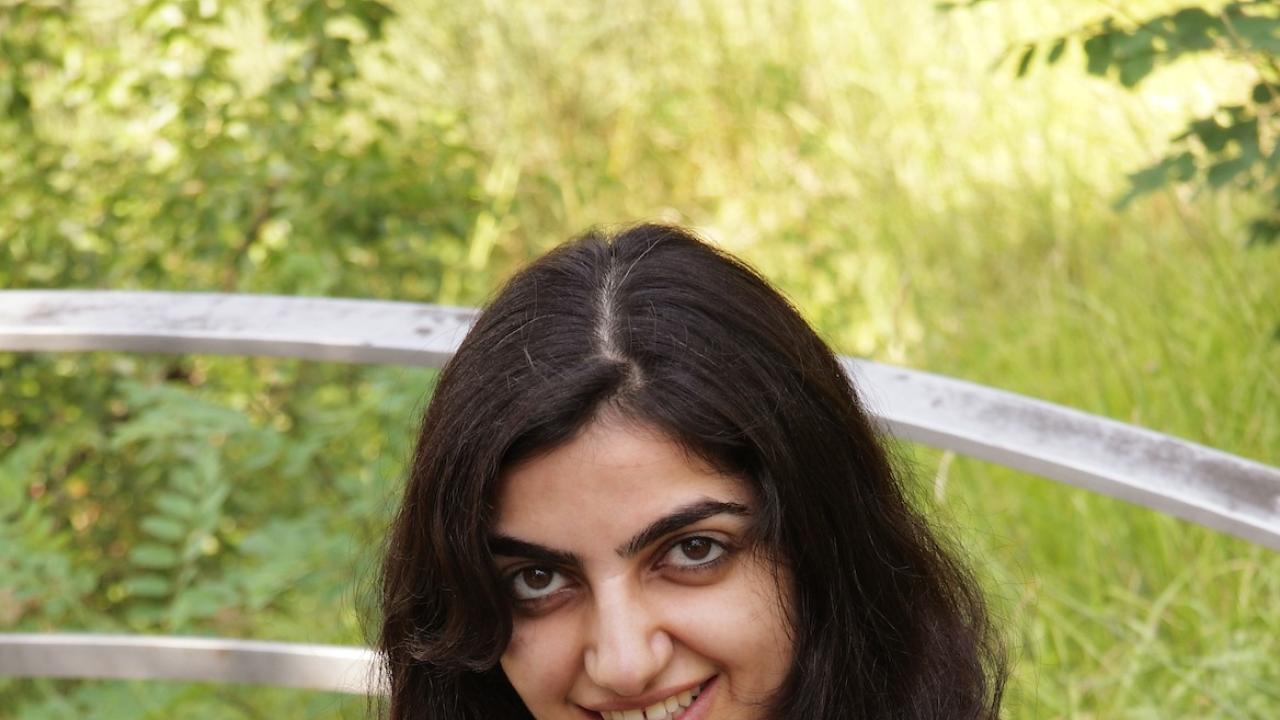
In a country like Iran, it's not easy to meet and live with people from other parts of the world. But someone climbing the academic ladder might get the chance to encounter different viewpoints that are unavailable to most Iranians. One such person is Behnaz Bagheri, a diploma student in condensed matter physics, for whom science opened a door to the rest of the world.
Bagheri originally took an interest in engineering, but as her early education progressed she was drawn into physics. "Engineering is more applied, but physics is more fundamental," she said. "Physics is like a base for engineering." She entered the physics programme at the Isfahan University of Technology in her hometown of Isfahan, Iran. She also published a paper in the Iranian Journal of Physics.
But Bagheri longed for a chance to broaden her horizons. A major reason she came to ICTP was to work in an international setting, where she could adapt to using English, the dominant language in science, and experience the world like she hadn't before. "My university was just beside my house," Bagheri said. "I wanted to go abroad, to go somewhere far away from my family and I wanted to be independent."
For Bagheri, the international collection of students at ICTP is a major appeal. For example, she said, her research group in the condensed matter section has eight people from different cultures and religions. Bagheri also shares an apartment with a person she hadn't known before, which is a new experience for someone who, until now, had only lived with her family in Iran. She believes that, since arriving in Italy, she's grown up more than ever before. "My life is in my own hands. I have to prepare food for myself, and manage my time: when to study, when to clean, when to go out," she said. "In my hometown it's just studying, nothing else. Everything was prepared for me."
Bagheri's work in condensed matter attempts to explain the reasons behind an unusual property of films of indium oxide. Experiments have shown that such two dimensional films change from acting like an insulator to a superconductor when their levels of defects changes. This is strange, since two-dimensional objects never normally behave like a superconductor. Bagheri is currently trying to figure out why this substance changes this way.
Bagheri said she's thankful ICTP gave her the chance to study here. She's learned that different professors can look at the same problem in different ways. In addition to the international experience, the level of teaching is simply better, and she's already been admitted to the University of Waterloo in Canada where she will be able to broaden her international experience even further.
















